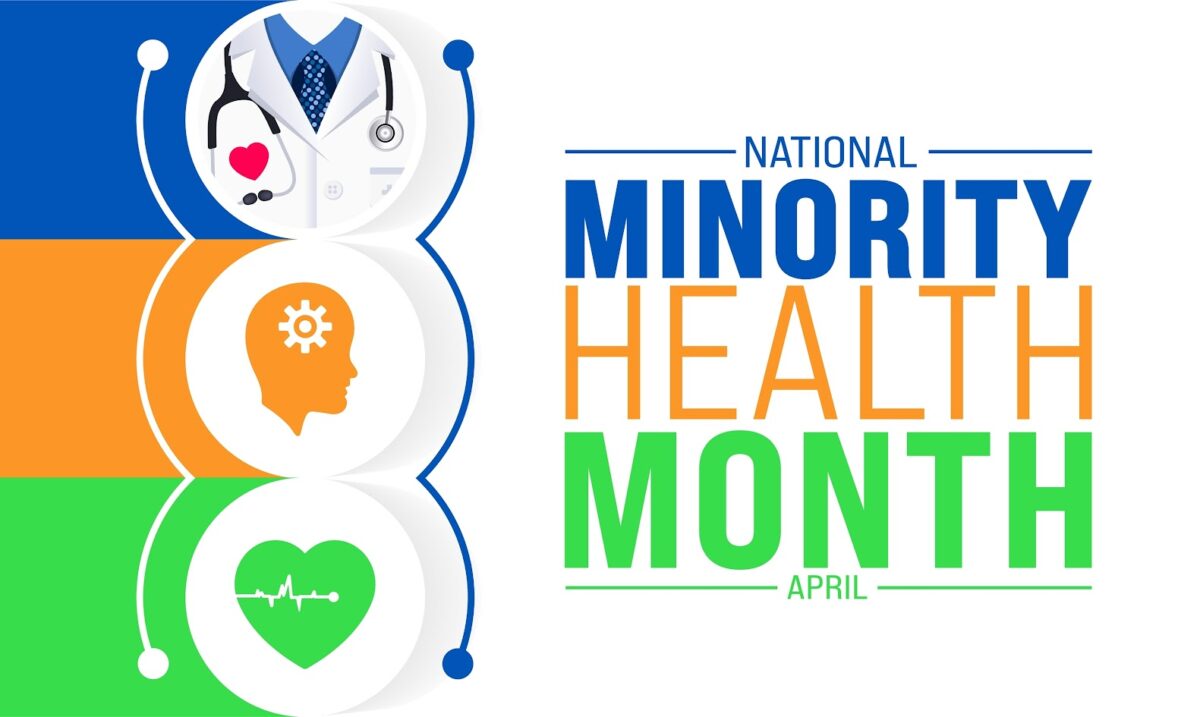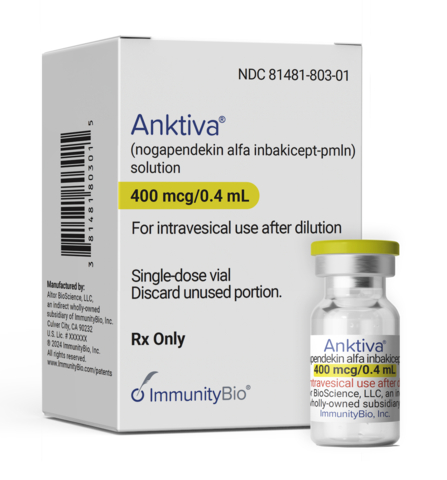Vaccine candidates from Novavax and Johnson & Johnson are looking to join the growing list of authorized COVID-19 vaccines as the companies recently posted positive efficacy data from large-scale Phase III trials evaluating their respective vaccines. Shots from both companies could also offer protection against some of the new circulating variants of SARS-CoV-2, which is welcome news in light of their increasing spread around the world.
Biotech company Novavax (Nasdaq: NVAX) reported that its protein-based vaccine demonstrated an efficacy of 89.3 percent in Phase III trials in the UK, in which over 50 percent of cases were attributable to the B.1.1.7 variant that first popped up in the country.
Johnson & Johnson’s single-shot DNA vaccine candidate was shown to have an overall effectiveness of 66 percent in preventing moderate to severe COVID-19. It has an even more encouraging efficacy of 85 percent when it comes to preventing severe disease, which is critical to curbing hospitalizations and deaths.
The overall efficacy percentage for Johnson’s vaccine comes from data across trials being conducted in the US, South Africa and in countries in Latin America; in the latter, cases have included the new variants. In US trials, the Johnson & Johnson vaccine was found to be 72 percent effective.
Related: Moderna’s COVID-19 Vaccine Effective Against New Variants
“These topline results with a single-shot COVID-19 vaccine candidate represent a promising moment. The potential to significantly reduce the burden of severe disease, by providing an effective and well-tolerated vaccine with just one immunization, is a critical component of the global public health response,” said Paul Stoffels, MD, vice chairman of the executive committee and chief scientific officer, Johnson & Johnson, in a news release from the company.
Novavax’s Protein Vaccine
Of the leading vaccine candidates, Novavax’s shot (NVX-CoV2373) is one of the first protein vaccines in late-stage trials for COVID-19. It contains the full-length, pre-fusion spike protein of the SARS-CoV-2 coronavirus that was engineered using Novavax’s recombinant nanoparticle technology and the company’s proprietary saponin-based Matrix-M adjuvant. The protein is produced in insect cells and then purified.
Novavax’s vaccine is shipped in a ready-to-use liquid formulation that is stable at fridge temperatures of 2°C to 8°C, allowing for its distribution using existing vaccine supply chains. Its export to lower income countries is thus less of a challenge compared to mRNA vaccines which require storage at extra cold subzero temperatures of -70°C owing to mRNA’s inherent instability.
Johnson & Johnson’s DNA Vaccine
The DNA vaccine was created using Janssen’s AdVac technology platform that is designed for rapid vaccine development. Its design was kept in mind “to help the global health community better prepare for and combat life-threatening infectious disease outbreaks,” says Janssen.
The technology was used to develop Janssen’s Ebola vaccine regimen, which was approved by the European Commission in July 2020 and sent out to the Democratic Republic of the Congo (DRC) and Rwanda. The company’s HIV, RSV and Zika vaccine candidates were also generated using the AdVac technology platform.
COVID-19 Phase III Trial Results
Johnson & Johnson’s vaccine exhibited complete protection against COVID-19-related hospitalization and death in its Phase III ENSEMBLE study. The co-primary endpoints for prevention of moderate to severe disease at days 14 and 28 following vaccination were met, with early onset of protection observable as early as day 14.
Among the COVID-19 cases in individuals that had received the vaccine in the trial, none required medical intervention such as hospitalization, ICU admission, mechanical ventilation or extracorporeal membrane oxygenation (ECMO) 28 days post-vaccination.
The ENSEMBLE study is a randomized, double-blind, placebo-controlled clinical trial designed to evaluate the safety and efficacy of the single-dose vaccine versus placebo in adults 18 years old and older.
The trial is being conducted in eight countries across three continents. It currently has 14,672 participants who represent diverse, broad populations, 34 percent of whom are over the age of 60.
“A one-shot vaccine is considered by the World Health Organization to be the best option in pandemic settings, enhancing access, distribution and compliance. Eighty-five percent efficacy in preventing severe COVID-19 disease and prevention of COVID-19-related medical interventions will potentially protect hundreds of millions of people from serious and fatal outcomes of COVID-19. It also offers the hope of helping ease the huge burden placed on healthcare systems and communities,” said Stoffels.
Novavax’s Phase III UK trial met its primary endpoint — the first occurrence of PCR-confirmed symptomatic COVID-19 with onset at least seven days after the second vaccine dose. The study evaluated efficacy during a high transmission period owing to circulation of the new B.1.1.7 variant strain.
The first interim analysis was based on 62 cases of COVID-19 of which 56 occurred in the placebo group and six in the vaccine group, yielding the point estimate vaccine efficacy of 89.3 percent. Of the 62 total cases, 61 were mild or moderate and only one was severe, which was in the placebo group.
Preliminary analysis showed the prevalence of the UK variant strain in the group as it was detected in over 50 percent of PCR-confirmed symptomatic cases (32 UK variant, 24 non-variant and six unknown). Breaking down the efficacy for each strain, the vaccine was 95.6 percent effective against the original parent SARS-CoV-2 strain and 85.6 percent against the UK variant.
Multi-National Trials and New Variants
Both the Novavax and Johnson & Johnson trials were conducted across several different countries including the US, UK, South Africa and several Latin American countries. The study results include efficacy data for the vaccines against some of the new, more infectious circulating variants of SARS-CoV-2.
The studies are being conducted during the height of the COVID-19 pandemic when disease spread is rampant in many areas of the world, giving rise to greater exposures. ENSEMBLE is currently being conducted in eight countries and three regions.
Both Novavax and Johnson & Johnson released data from the South African arms of their studies.
South Africa Phase IIb Results: Approximately 90 percent of COVID-19 Cases Linked to B.1.351
In Novavax’s Phase IIb trial being conducted in South Africa, the company’s candidate vaccine demonstrated an efficacy of 60 percent for the prevention of mild, moderate and severe COVID-19 disease in the 94 percent of the study population that was HIV-negative. Twenty-nine cases were observed in the placebo group and 15 in the vaccine group, of which there was one severe case in the placebo group with all other cases being mild or moderate.
Importantly, about 90 percent of the COVID-19 cases in the trial were attributed to the B.1.351 variant that was first identified in the country.
“The 60 percent reduced risk against COVID-19 illness in vaccinated individuals in South Africans underscores the value of this vaccine to prevent illness from the highly worrisome variant currently circulating in South Africa, and which is spreading globally. This is the first COVID-19 vaccine for which we now have objective evidence that it protects against the variant dominating in South Africa,” says Professor Shabir Maddi, executive director of the Vaccines and Infectious Diseases Analytics Research Unit (VIDA) at Wits, and principal investigator in the Novavax COVID-19 vaccine trial in South Africa.
Of note, approximately one third of the patients enrolled in the trial (but not included in the primary analyses) were seropositive, indicating prior COVID-19 infection at baseline. Novavax says that “based on temporal epidemiology data in the region, the pre-trial infections are thought to have been caused by the original COVID-19 strain (i.e., non-variant), while the subsequent infections during the study were largely variant virus.” These data suggest that prior natural COVID-19 infection may not provide complete protection against subsequent infection by the new emergent B.1.351 escape variant; however, the NVX-CoV2373 vaccine conferred significant protection.
Despite this, Novavax is working on the development of new constructs against emerging strains with plans to identify candidates as part of a booster regimen and/or combination bivalent vaccine for the new strains. The company plans to initiate clinical testing of these new vaccines in the second quarter of this year.
“I am encouraged to see that Novavax plans to immediately begin clinical development on a vaccine specifically targeted to the variant, which together with the current vaccine is likely to form the cornerstone of the fight against COVID-19,” said Maddi.
“A primary benefit of our adjuvanted platform is that it uses a very small amount of antigen, enabling the rapid creation and large-scale production of combination vaccine candidates that could potentially address multiple circulating strains of COVID-19,” said Gregory M. Glenn, MD, president of research and development, Novavax. “Combined with the safety profile that has been observed in our studies to-date with our COVID-19 vaccine, as well as prior studies in influenza, we are optimistic about our ability to rapidly adapt to evolving conditions.”
Novavax’s also has a Phase III randomized, placebo-controlled, observer-blinded study in the US and Mexico called PREVENT-19 (the PRE-fusion protein subunit Vaccine Efficacy Novavax Trial | COVID-19) to evaluate the efficacy, safety and immunogenicity of NVX-CoV2373 in up to 30,000 participants 18 years of age and older.
Johnson & Johnson’s ENSEMBLE Study
The ENSEMBLE study’s primary endpoint is the prevention of PCR-confirmed, symptomatic COVID-19. The key secondary endpoint is the prevention of PCR-confirmed, symptomatic moderate or severe COVID-19. Both endpoints will be assessed at least seven days after the second study vaccination in volunteers who have not been previously infected with SARS-CoV-2.
The trial, conducted in a total of eight countries across three continents, includes a diverse and broad population including 34 percent of participants over age 60.
Vaccine efficacy was overall consistent across race, age groups, including adults over 60 years of age, as well as among all variants and regions in the study, including South Africa where almost all COVID-19 cases (95 percent) were due to infection with SARS-CoV-2 of the B.1.351 lineage.
In the study, 44 percent of all enrolled participants are from the US, 41 percent from Central and South America (Argentina, Brazil, Chile, Colombia, Mexico, Peru) and 15 percent from South Africa.
Forty-one percent of participants in the study had comorbidities associated with an increased risk for progression to severe COVID-19; these include type 2 diabetes, hypertension and HIV; other immunocompromised participants were also in the study.
The vaccine was found to be generally well-tolerated and did not demonstrate any significant safety concerns. Overall serious adverse events (SAEs) reported were higher in participants who received placebo as compared to the active vaccine candidate. No anaphylaxis was observed.
Participants in the Phase III ENSEMBLE trial will be followed for up to two years for continued evaluation of vaccine safety and efficacy.
Authorizations and Approvals
Novavax and Johnson & Johnson’s vaccines could see authorizations and approvals some time in February. Johnson & Johnson is in the process of submitting an application for its single shot vaccine to the US Food and Regulatory Agency (FDA) for emergency use authorization (EUA) and is also seeking approval in the EU. Novavax has submitted an application to Health Canada, which is currently reviewing Johnson & Johnson’s data that it submitted to the agency back in November.
The vaccines will join those from Pfizer, Moderna and AstraZeneca in helping combat the ongoing COVID-19 pandemic. According to Bloomberg, over 98.3 million COVID-19 vaccine doses have been administered in 62 countries around the world as of January 31, with 31.8 shots having been given out in the US so far.












Join or login to leave a comment
JOIN LOGIN